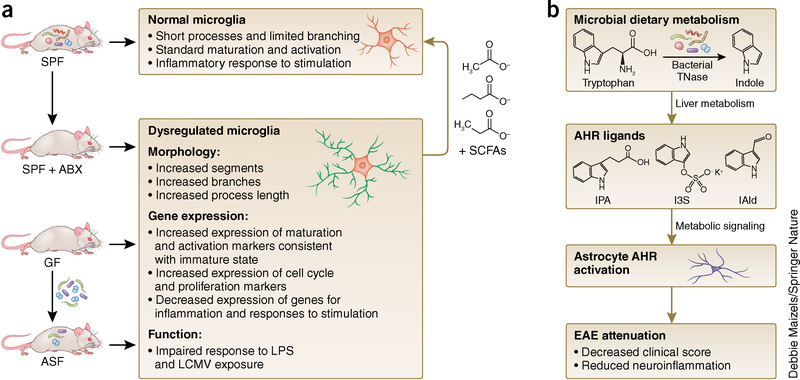Figure 1.
Effects of the microbiota on microglia and astrocyte biology. (a) Microglial maturation and function are affected by the presence or absence of a complex microbiota. Compared to conventionally colonized (specific pathogen–free, SPF) controls, mice reared in the absence of microbial colonization (germ free, GF) have microglia with abnormal morphology, altered gene expression and impaired functional response to stimulation. Similar microglial abnormalities are seen in microbiota-depleted mice, produced by antibiotic treatment of SPF mice (ABX) or colonization of GF mice with three bacterial taxa from a limited altered Schaedler flora (ASF) consortium (B. distasonis, L. salivarius, and Clostridium cluster XIV). Microglial abnormalities in GF mice are corrected by supplementation with short-chain fatty acids (SCFAs), products of bacterial fermentation. (b) Microbial metabolites bind to the aryl hydrocarbon receptor (AHR) in astrocytes, reducing symptoms of EAE. Type I interferon signaling in astrocytes diminishes inflammation and decreases EAE clinical scores, and this effect is reversed by antibiotic treatment. Particular tryptophan metabolites produced by the microbiota stimulate AHR and reduce EAE clinical scores. This suggests that the microbiota have a direct effect on AHR signaling and inflammation in astrocytes, which may have relevance to multiple sclerosis, where patients show decreased tryptophan-derived metabolites in sera. TNase, tryptophanase; IPA, indole-3-propionic acid; IAld, indole-3-aldehyde; I3S, indoxyl-3-sulfate.

